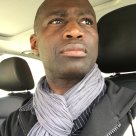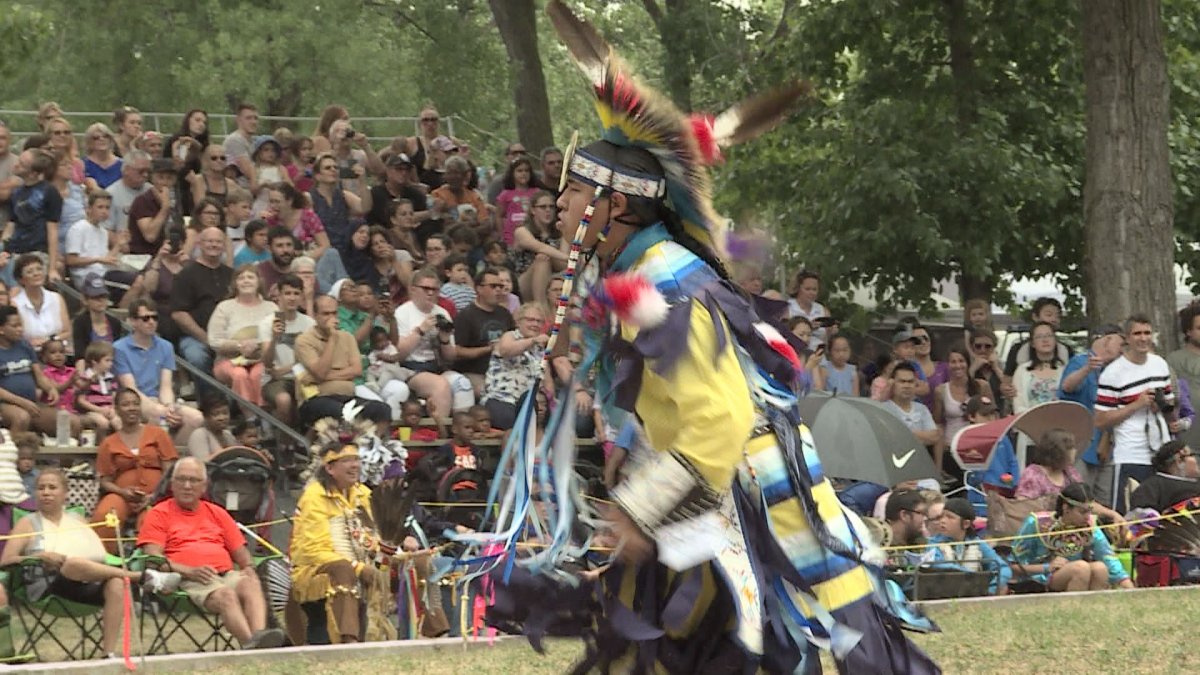Virgina Jacobs arrived at the Echoes of a Proud Nation Powwow in Kahnawake, sporting long earrings made from different coloured beads.

To most people, this may look like simple jewelry, but there’s a significant meaning behind the beads.
“Black represents black people, white represents non-natives, yellow, Chinese, where we get our beads,” she laughs, “And red, us.”
She’s a Mowhawk from Akwesasne and is selling beaded jewelry that she made. Making the pieces is a tradition that she learned from her elders.
“It’s passed on from the grandmother to the mother, to the mother, to the kids,” she explains.
It’s one of many parts of her culture she hopes non-indigenous people are able to learn about at the powwow.
- Life in the forest: How Stanley Park’s longest resident survived a changing landscape
- ‘Love at first sight’: Snow leopard at Toronto Zoo pregnant for 1st time
- Carbon rebate labelling in bank deposits fuelling confusion, minister says
- Buzz kill? Gen Z less interested in coffee than older Canadians, survey shows
“Well even these dancers like the grass dancers, they’re imitating the grass,” she says swaying from left to right. “How the grass flows, you know? And a lot of people don’t know that either.
“So every time you come, you learn something.”
Though she’s hopeful for the future, Jacobs says she doesn’t always like how she’s treated, as an indigenous woman, even when she’s wearing traditional dress in public.
“Let’s say I go to a ceremony and I don’t have time to go home and change,” she tells Global News. “I’m in my skirt, I’m in my top I’m in my, you know, I’m in my best wear.”
She says when she walks into some stores she’ll get looks of disdain.
“We still get that,” she says shaking her head.
Kimberly Cross, who is a co-organizer of the powwow and lives in Kahnawake, says the event is important for building bridges. That was the point of the first powwow.
It happened the year after 1990 Oka Crisis that highlighted divisions between indigenous and non-indigenous communities. She believes dialogue about the past is an important part of moving forward.
“Reconciliation has a lot to do with education and learning about who indigenous people are and what they’ve gone through,” she tells Global News.
“This powwow is in memory of something huge that happened in our history.”
She says it’s a huge opportunity to share their culture.
“It’s not just the Mohawks who are here,” she points out. “We have different indigenous people who come from all over Canada, the U.S., and South America.”
There are more than a hundred vendors at the powwow with various arts and crafts, fashion, food and of course, the dancing.
Jocobs hopes all this fun, will lead to change.
“Hopefully they respect us a little bit more,” she says. “You know, that we’re not just … I don’t know. I don’t know how to explain it.”
The two-day powwow ends Sunday.



Comments